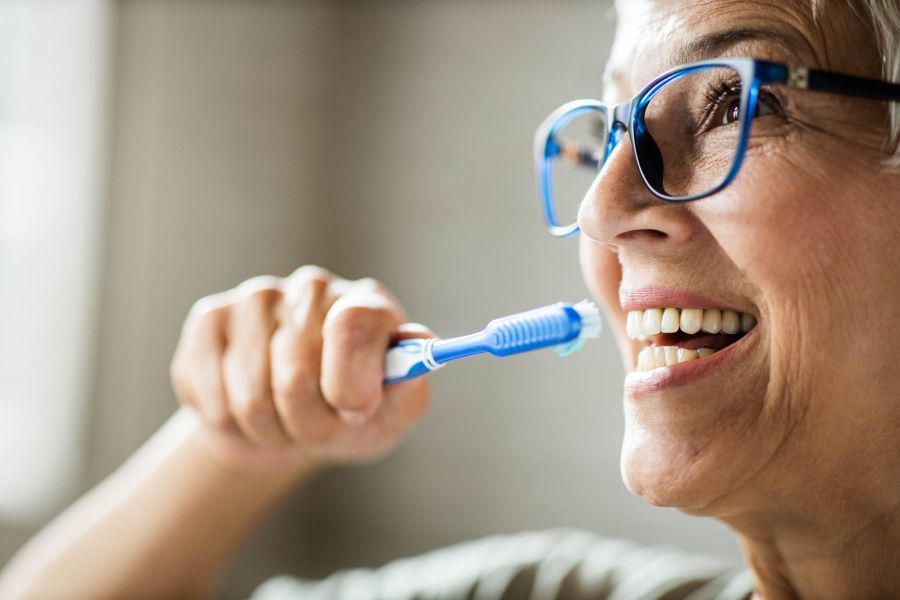Many people look forward to comprehensive restoration in the wake of tooth loss with dental implants. The implanted anchor of the fixture replaces missing teeth below the gumline while prosthetic teeth replace them above. This way, you can see maximum oral structure, function, health, and aesthetics.
Dental patients often like that fixed devices like implants will not need extra maintenance to keep them clean and functioning. But you must still take proper care of your smile with regular oral hygiene practices.
Good oral hygiene is necessary to ensure your implants work as well as possible, but you will need to exercise caution during the cleaning process. Read on to learn how you can maximize oral hygiene without harming your new dental implants.

Practice Consistent, Careful Oral Hygiene
The prosthetic teeth of your dental implant resist both staining and tooth decay so that you can look forward to a gorgeous finish that can endure for twenty years or longer. But you still need to practice proper oral hygiene in order to remove plaque and other residues that will accrue on these fixtures.
If left on your implants, plaque will spread and cause gum disease or cavities in your natural teeth. These issues can alter the shape and health of your smile which will in turn affect the fit of your implants.
If your implant seems loose or you feel intense oral pain, this could mean that the implant is failing. Dental implant failure will warrant urgent treatment from your dentist.
To avoid this issue, you need to adhere to your regular oral hygiene routine. Brush your teeth twice each day and floss daily. But you will need to be careful when cleaning near the healing surgical sites directly after your implant procedure.
Use gentle motions when cleaning near your new implants as they heal so that you do not disrupt your recovery. Follow your dentist’s aftercare guidelines so that you can keep your smile clean without hurting the implants.
Consider Targeted Oral Hygiene Tools
You know that you need to use a toothbrush, toothpaste, and floss to complete your oral hygiene routine. Dental implant patients should pay attention to the tools they employ for this process in order to avoid harming their fixtures.
For instance, they should use a soft-bristled toothbrush so that they do not scratch their prosthetic teeth while brushing. Damaged implants will spoil the smile’s aesthetic and make the gums vulnerable to infection.
You can also consider choosing oral hygiene supplies specifically designed for dental implant patients. A water flosser can feature a tip that will allow you to navigate around oral appliances for more thorough and precise cleaning between the teeth and implants. A flexible toothbrush will also improve your ability to scrub the surface of the teeth near the implants.
Mouthwash can boost your oral hygiene routine. But you should not use this product directly after implant surgery. Rinsing and spitting will likely hurt your surgical sites. Ask your dentist for more tips about oral hygiene and dental implants.
